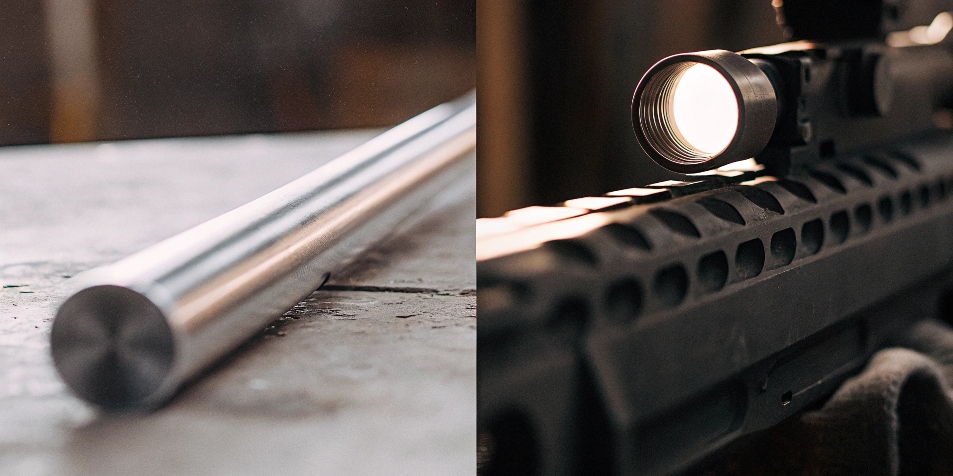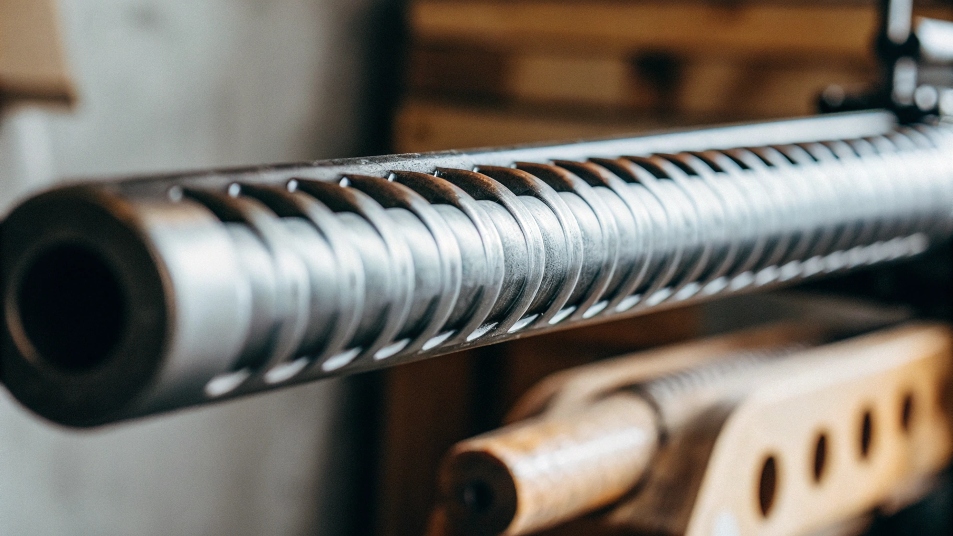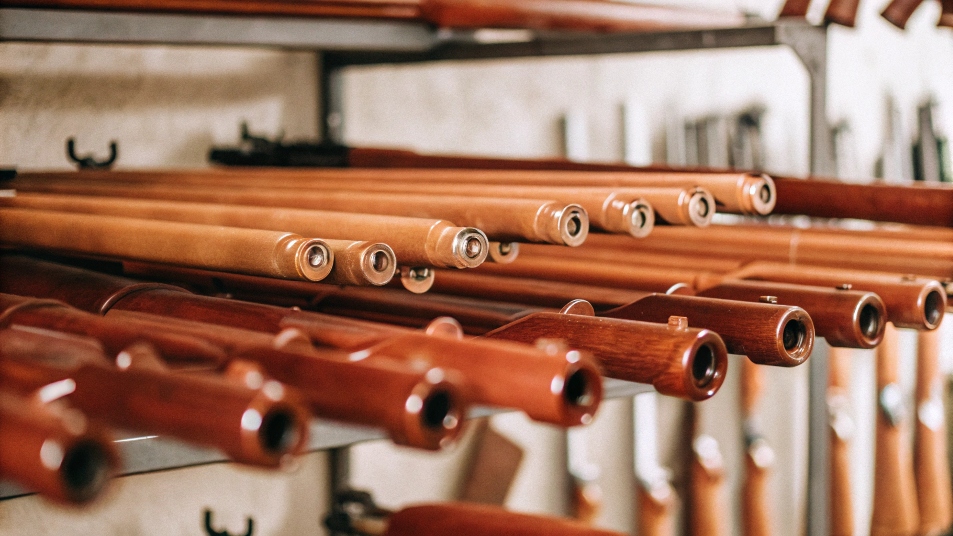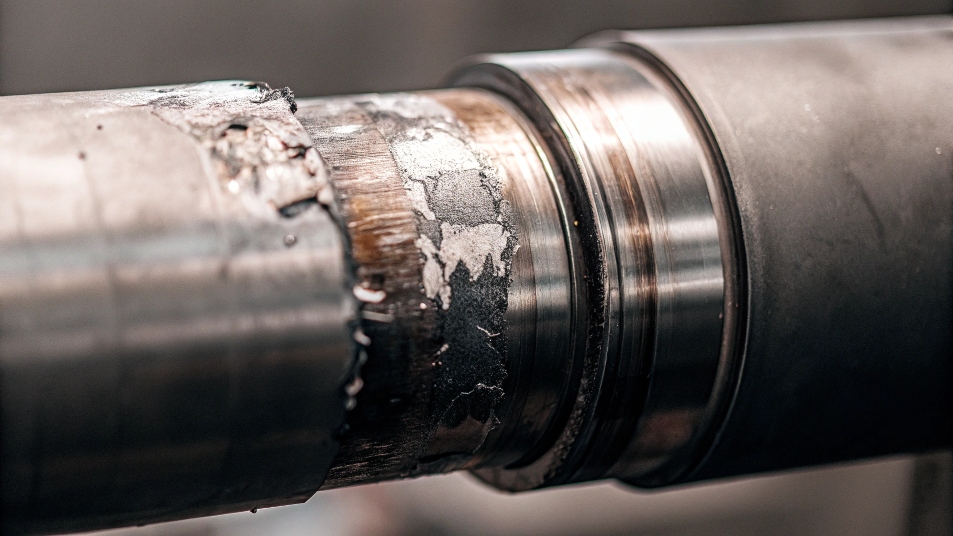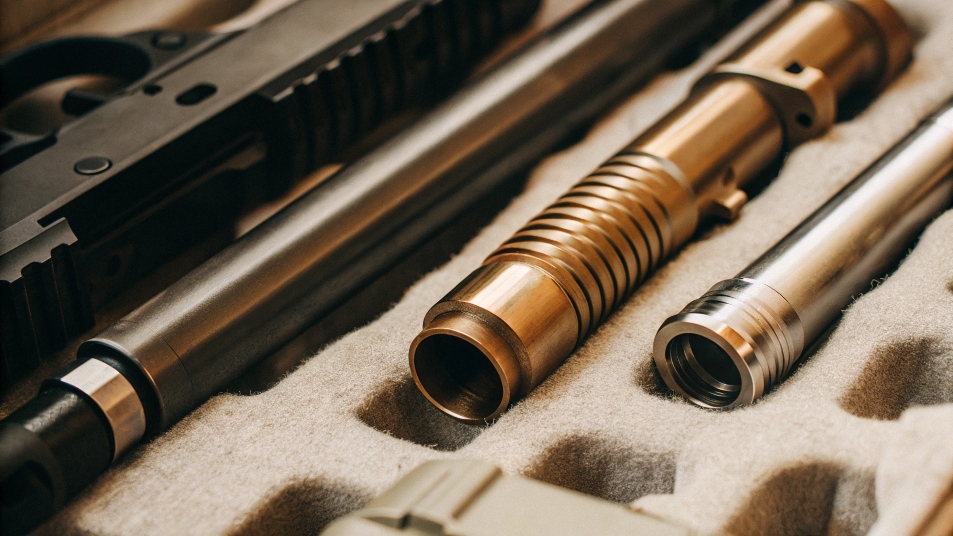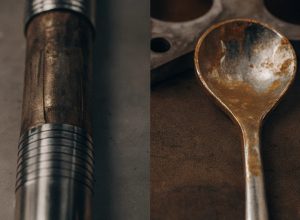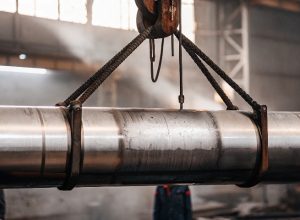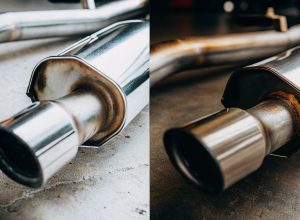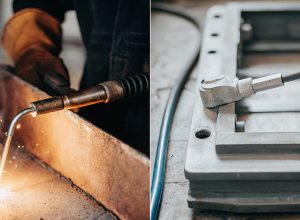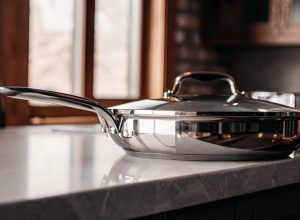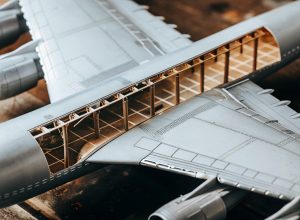Struggling with heavy rifle barrel1s? The weight affects your aim and endurance. While titanium seems like the perfect lightweight fix, the truth is not that simple.
Titanium is generally not a good choice for a rifle barrel. Its poor heat dissipation causes rapid wear and accuracy drift under firing conditions. Steel alloys like 416R2 or 4150 offer a much better balance of strength, heat resistance, and longevity for barrel applications.
I often discuss material properties with procurement managers like David in Germany. They need materials that perform without fail, and the question of using titanium for barrels comes up frequently. Everyone is drawn to its incredible strength-to-weight ratio. But when I work with clients in the aerospace and industrial sectors, we always start with the specific application’s demands. A rifle barrel has some of the most demanding requirements of any component I can think of. It has to handle intense heat, extreme pressure, and abrasive friction, all while maintaining precise dimensions. Let’s break down exactly why titanium, despite its strengths, falls short here.
Can you use titanium for a gun barrel?
Can you technically machine a barrel from titanium? The thought of a lightweight, corrosion-proof barrel is tempting. But moving from theory to a reliable, functioning firearm is a big jump.
Yes, you can physically make a gun barrel from titanium. However, it is not practical for most firearms. The material erodes quickly from the heat and pressure of firing, especially at the throat. This significantly shortens the barrel’s service life, compromising safety and accuracy.
When a client asks me about using titanium for a high-stress, high-heat part, the first thing we discuss is thermal performance. A gun barrel’s biggest challenge is managing the intense heat from burning propellant. This is where titanium, specifically Grade 5 (Ti-6Al-4V) which is the most common choice, struggles. It has low thermal conductivity. This means it doesn’t transfer heat away from the barrel’s core efficiently. The heat builds up very quickly with each shot.
This leads to several problems:
Heat Expansion and Accuracy Drift
As the barrel heats up, it expands. Because titanium holds this heat, the expansion can be significant and uneven, causing the barrel to slightly warp. This "heat drift" a common term in precision shooting, will cause the point of impact to shift as you fire more rounds. For a procurement manager like David, whose end-users rely on consistency, this is a critical failure.
Compromised Strength at High Temperatures
While titanium is very strong at room temperature, its strength decreases significantly as it gets hot. The repeated heat cycles from firing can fatigue the metal much faster than steel, raising safety concerns over the barrel’s lifespan. You can see the property differences below.
| Property | Grade 5 Titanium | 416R Stainless Steel |
|---|---|---|
| Thermal Conductivity | Low (~6.7 W/m·K) | Moderate (~24.9 W/m·K) |
| Density | Low (~4.43 g/cm³) | High (~7.8 g/cm³) |
| Strength at High Temp | Poor | Good |
| Machinability | Difficult | Excellent |
What is the best metal for a rifle barrel?
Searching for the perfect barrel material? You need something that balances strength, wear resistance, and cost. Getting this choice wrong leads to poor performance and added expenses down the line.
The best metals for rifle barrels are typically high-strength steel alloys. Stainless steel 416R is popular for its excellent machinability and corrosion resistance. Chrome-moly steels like 4140 or 4150 are also top choices, known for their toughness and long service life.
When my team works with clients needing materials for high-wear applications, we almost always land on specialized steel alloys. They have been the standard for rifle barrels for over a century for good reasons. They offer a fantastic balance of properties that are perfectly suited for the job. Let me break down the two main types.
416R Stainless Steel
This is a go-to material for precision rifle barrels. The "R" in its name indicates it’s suitable for barrel making. Its key advantage is its excellent machinability. This allows manufacturers to cut precise chambers and rifling with a very smooth finish, which is critical for accuracy. It also has a good amount of chromium, which gives it great corrosion resistance. You don’t have to worry as much about rust, even in difficult environments. It handles heat well enough for most precision shooting disciplines.
4140/4150 Chrome-Moly Steel
These are tougher and more durable steels, often used in military and high-volume shooting rifles. They have slightly better fatigue life and can withstand heat a bit better than 416R. This makes them extremely reliable. However, they are not naturally corrosion-resistant like stainless steel, so they must be coated or finished with processes like phosphating or nitriding to protect them from rust.
| Material Type | Ideal Use Case | Key Benefit | Main Trade-Off |
|---|---|---|---|
| 416R Stainless | Precision/Match Rifles | Machinability & Corrosion Resistance | Slightly less tough than chrome-moly |
| 4140/4150 Chrome-Moly | Military/Hard-Use Rifles | Toughness & Durability | Requires protective coating |
Why no titanium barrels?
If titanium is so strong and lightweight, why don’t we see it used for barrels? This question puzzles many engineers and buyers. The answer lies beyond the basic spec sheet.
The main reason is titanium’s poor thermal performance. It heats up quickly and holds that heat, leading to rapid throat erosion and barrel warping. It also has a ‘galling’ issue, meaning it can stick to the bullet jacket under pressure, further degrading accuracy and barrel life.
A few years ago, a procurement manager for a sporting goods company called me. He was excited about the idea of an "ultralight mountain rifle" and wanted to source titanium bar stock for the barrels. I had to walk him through the two failure points that are not obvious from a simple material data sheet: throat erosion and galling.
Severe Throat Erosion
The "throat" is the very beginning of the rifling, just in front of the chamber where the bullet sits. This area experiences the highest temperatures and pressures. Because titanium cannot shed heat quickly, this area becomes intensely hot with every shot. This heat, combined with the hot gases, erodes the titanium rifling much faster than it would on a steel barrel. After just a few hundred rounds, the accuracy can degrade to unacceptable levels. For a product manager like David, this short service life is a non-starter.
Galling and Friction Issues
Titanium has a tendency to gall, especially when it rubs against other metals under high pressure. Galling is a form of wear where the material sticks and tears away from the surface. In a barrel, this means tiny particles from the copper bullet jacket can essentially weld themselves to the titanium bore. This buildup ruins the smooth surface needed for consistent accuracy and increases pressure inside the barrel, which is a safety risk.
| Problem | Cause | Impact on Performance |
|---|---|---|
| Throat Erosion | Low thermal conductivity | Rapid loss of accuracy; short service life. |
| Heat Drift | Heat retention and expansion | Point of impact shifts during firing. |
| Galling | Material adhesion under pressure | Inconsistent accuracy; potential safety risk. |
| High Cost | Difficult to source and machine | Significantly increases final product cost. |
Is titanium good for firearms?
You have heard titanium is not great for barrels. Does that mean it has no place in firearms at all? Not at all. Its unique properties can be a huge advantage elsewhere.
Yes, titanium is excellent for many firearm components where weight saving is critical and heat is less intense. It is often used for suppressor baffles and tubes, firing pins, guide rods, and revolver cylinders. Its strength-to-weight ratio and corrosion resistance are major benefits in these parts.
While I advise clients against titanium for barrels, I often recommend it for other parts of a firearm. Its benefits are undeniable when used in the right application. By putting the material where it can excel, you can build a lighter, faster, and more durable overall system. At Titonest, we supply titanium for many such applications. The key is understanding where its properties provide a clear advantage without introducing a critical failure point.
Suppressors (Silencers)
This is a perfect use for titanium. A suppressor’s job is to trap gas, and its weight at the end of the barrel can ruin the balance of a rifle. Using titanium for the main tube and internal baffles makes the suppressor significantly lighter without sacrificing strength. It can handle the heat of a few shots well enough, and its corrosion resistance is a huge plus.
Other Components
Many smaller parts benefit from titanium’s unique qualities.
- Firing Pins: A lighter titanium firing pin has less inertia, allowing it to move faster. This can result in a quicker "lock time"—the time between pulling the trigger and the gun firing—which is a small but important detail for precision shooters.
- Frames and Cylinders: Some revolvers use titanium for the frame or cylinder to dramatically reduce weight, making them much easier to carry.
- Guide Rods & Bolt Carriers: In semi-automatic firearms, these parts can be made from titanium to reduce reciprocating mass, which can soften recoil and speed up the action’s cycle time.
| Component | Why Titanium Works Well | Key Benefit |
|---|---|---|
| Suppressor | High strength-to-weight, corrosion resistance | Reduced weight at the end of the barrel |
| Firing Pin | Low density, high strength | Faster lock time, improved precision |
| Revolver Frame | High strength-to-weight | Lighter weight for concealed carry |
| Bolt Carrier | Lower reciprocating mass | Softer recoil, faster cycling |
Conclusion
In short, use steel alloys like 416R2 for rifle barrels to ensure accuracy and durability. Reserve lightweight titanium for other firearm components where heat and erosion are not primary concerns.

